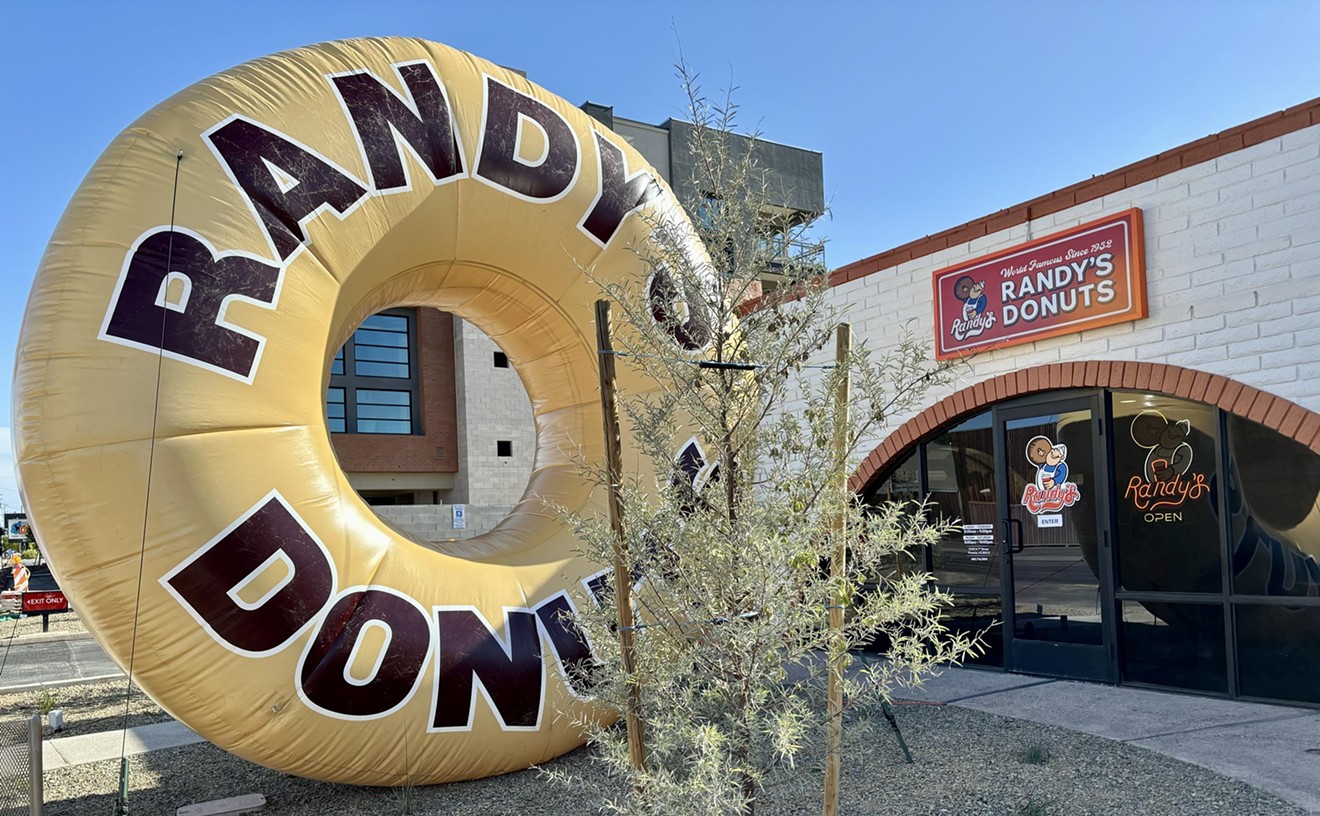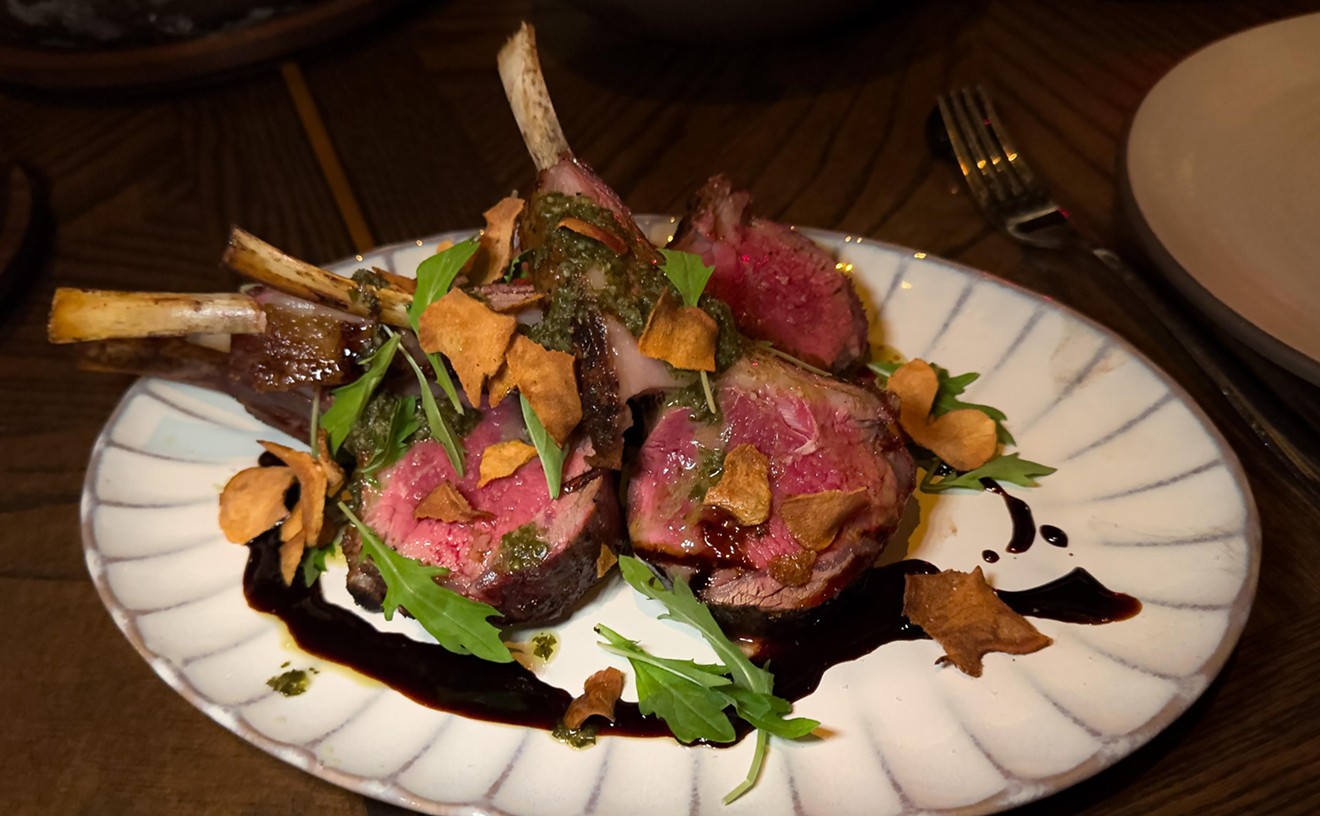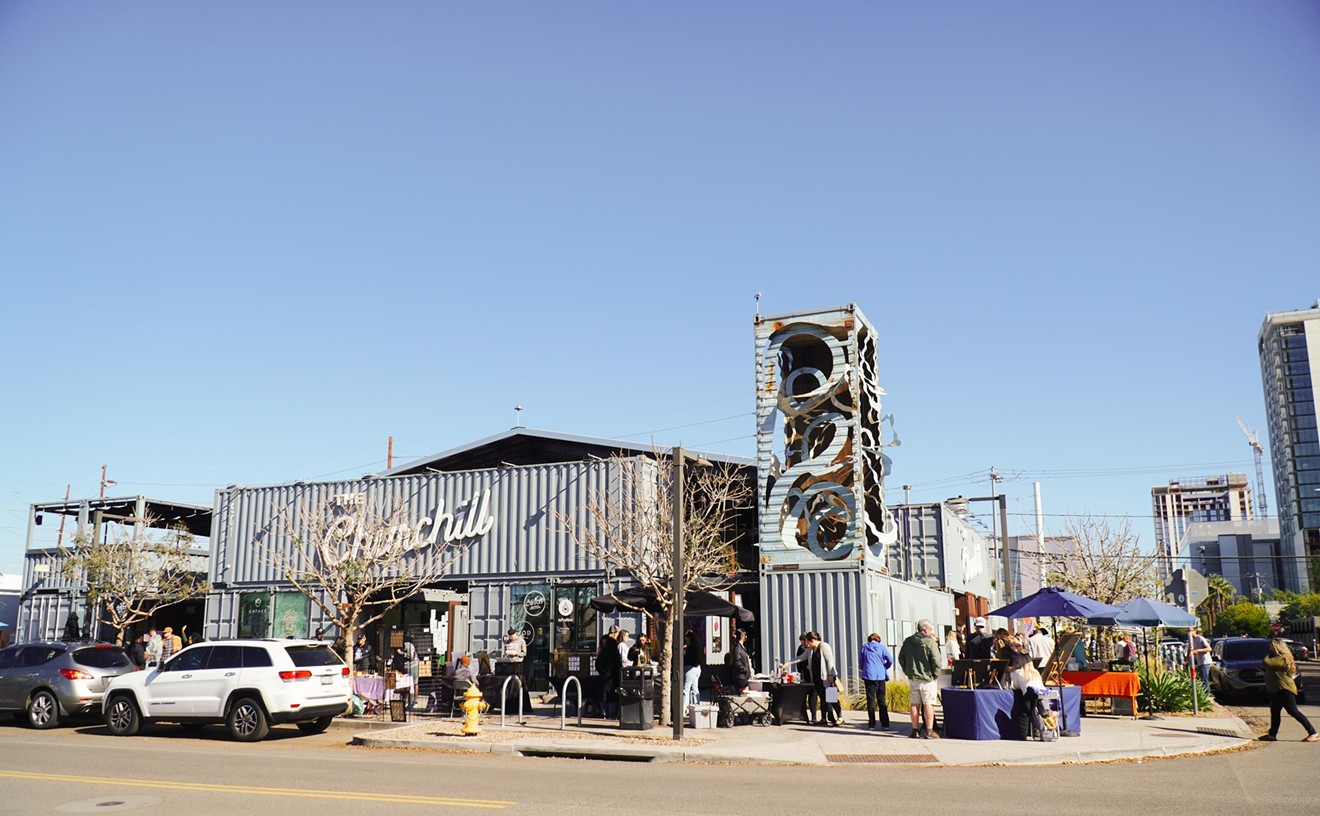The neat rows of stacked loaves, piled high on chrome shelves and in a glass display case, exude an anthropomorphic confidence. Secure in their quality, they bask unadorned.
Now in its fifth month of operation, the WILLO baking company has garnered a well-rounded clientele of hungry neighbors and popular restaurants. Among WILLO's better-known clients are Seasons Rotisserie and Grill, the Arizona Club (downtown), Bigoli, Crew Restaurant and Crew Cafe.
WILLO's bread deserves more than a wham, bam and thank-you kind of story. So I called David Lacy, the bakery's owner, to ask if I could spend some time in the kitchen, apprentice-style.
Lacy agreed without hesitation.
About five years ago, Lacy decided that Phoenix needed a great rustic bread bakery. He wasn't a baker, and he still isn't. He runs the business side of the operation, not the kitchen.
While WILLO was just an idea that preoccupied his thoughts, Lacy saw restaurateur Joe Allen at an embassy party in Paris. He recognized Allen as the owner of a French bakery in New York City.
Lacy introduced himself and asked Allen if he could do an apprenticeship at his Sullivan Street Bakery. Allen said yes.
When he returned from New York, Lacy bought the building at 534 West McDowell and began some serious renovations.
He teamed up with Dave Harding, a nine-year veteran of the baking business and now WILLO's baker. Their philosophy: It's better to make fewer breads, but make them all very well.
Harding also was an expert on ovens. Before investing $65,000 in an oven, Lacy wanted to talk to someone who already had one. Harding was using a French-made Pavailler oven at Village Baker in Flagstaff.
This is no regular oven. It's freestanding and it looks like a one-car garage. It has four decks, each about eight by 10 feet. It was shipped from France to San Diego via the Panama Canal, and then trucked to Phoenix. An assembly team from France flew over to put it together.
Each of the Pavailler's decks is a thick slab of stone that holds the heat. The oven is convection, so hot air swirls around the baking bread to ensure an even cooking. Each deck has steam jets. Adding a spurt of steam when the bread first goes in is the secret to making a perfectly browned and very crunchy crust.
Every loaf is cut, scaled and formed by hand. Only the kneading is done by machine. When Harding touches the bread, he knows exactly what stage the yeast has reached in the fermentation process. Is it ready to form, or does it need more time to rise?
Some bakeries refrigerate the dough to retard the rising process. This allows one batch of dough to be used for several days. But flavor is lost in the process. WILLO's bread is never refrigerated.
When I met Harding at the bakery a little before 8 on a recent evening, he was scaling the dough, working on long flat loaves of crusty Italian ciabatta. He cut chunks from a huge mound on the table and weighed each piece on a balance scale. Each soon-to-be-formed ciabatta loaf would weigh exactly 750 grams, a uniformity necessary so each loaf will bake evenly.
Four or five assistants rolled the dough into loaves as fast as Harding could scale the pieces. Then work began on smaller loaves, the bakery's signature WILLO loaves.
When Harding takes a hand at forming loaves, he works with the dexterity of a magician. He can work two small loaves simultaneously, one in each hand.
None of the other bakers possessed Harding's finesse. I needed both hands to make a single loaf. He can form two in 30 seconds; it took me a couple of minutes just to make one. He must have spent hours in the kitchen to become proficient in ambidextrous bread forming.
Two hours later, no one had taken a break. The conversation among the crew was always about the bread. How many loaves? What's next? Often, Harding would chime in, gently suggesting more, or less, flour on someone's work surface.
The process played out through the night, the same rhythmic dance for olive bread, sesame bread, the apricot-almond, and the walnut-currant. Each kind of bread becomes the newest belle of the ball.
Clearly, Harding leads this dance of texture and form. It's his pace that sets the mood.
Lacy just acquired a long-term lease on the building next door. Originally a flower shop, the circa 1940 "My Florist" sign still stands out front. Lacy plans to open My Florist Coffee House. He'll serve simple sandwiches and pastries. He's already lined up a local pastry chef, and hopes to create an exhibition kitchen.
He expects to be serving coffee in May. It sounds daunting, but I expect he's up to the task. For one thing, he never leaves. He lives in a loft over the bakery.
Contact Andy Broder at his online address: [email protected]










